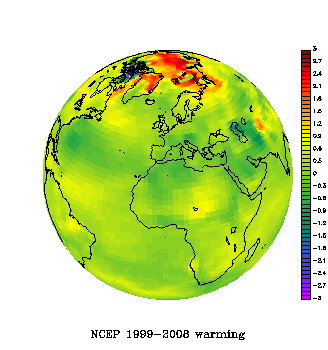The Sámi are keenly aware about climate change, and are thus concerned about their future. Hence, the existence of the International Polar Year (IPY) project called EALÁT involving scientists, Sámi from Norway/Sweden/Finland, as well as Nenets from Russia. The indigenous people in the Arctic are closely tuned to the weather and the climate. I was told that the Sámi have about 300 words for snow, each with a very precise meaning.
[Read more…] about Reindeer herding, indigenous people and climate change


 The
The

 Last week, the
Last week, the